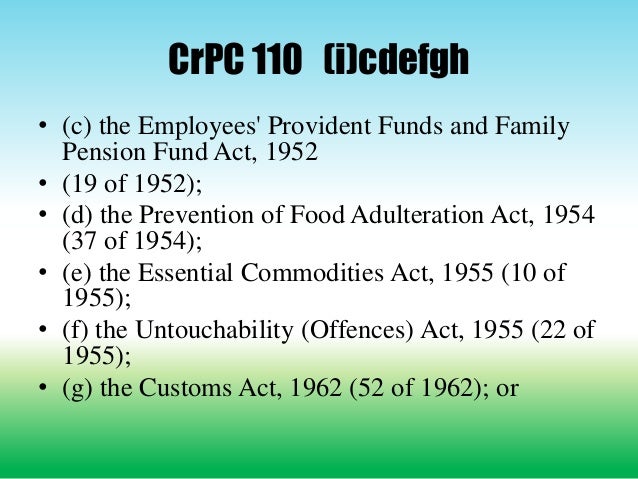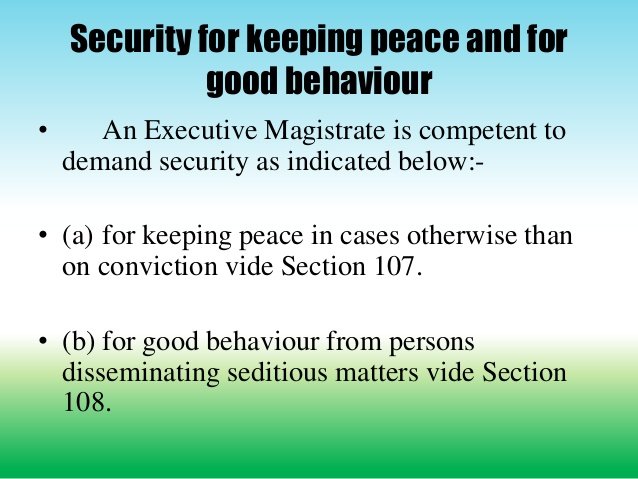Section 107 Of Crpc

Section 107 of the criminal procedure code.
Section 107 of crpc. Making it clear that section 107 security for keeping peace of the crpc can only be used to issue a warning the madras high court has held that no first information report fir can be registered for any offence under the section. December 15 2014 abetment of a thing. In case an executive magistrate receives information that a person is likely to commit a breach of peace he may order him to show cause.
S ection 151 code of criminal procedure. 1 when an executive magistrate receives information that any person is likely to commit a breach of the peace or disturb the public tranquillity or to do any wrongful act that may probably occasion a breach of the peace or disturb the public tranquillity and is of opinion that there is sufficient ground for proceeding he may in the manner hereinafter provided require such person to. State 1994 1 scc 471 it was held that proceedings under section 107 are for public peace and tranquillity whereas section 145 relates to disputes regarding possession between parties concerning any land or water or boundaries thereof.
Security for keeping the peace in other cases. Cr p c 107 security for keeping the peace in other cases from the code of criminal procedure by advocate raman devgan. The magistrate may also order him to execute a bond to keep peace in such period.
Instigates any person to do that thing. Section 107 of the indian penal code. In india section 107 and section 151 of crpc give the powers of police for preventive detention mainly.
Simply put section 107 of the criminal procedure code states that the executive magistrate has the power to apprehend any individual for not more than a year on information that a person is likely to disturb peace and public tranquility. Security for keeping the peace in other cases. December 16 2014 security for keeping the peace in other cases.
A fir register is meant for recording information of cognizable offence. Section 107 in the code of criminal procedure 1973. A person abets the doing of a thing who.

















